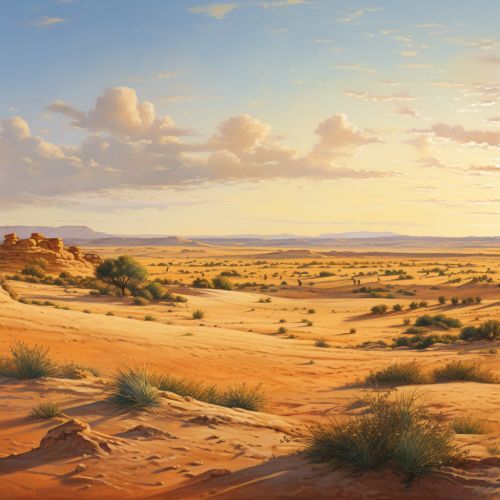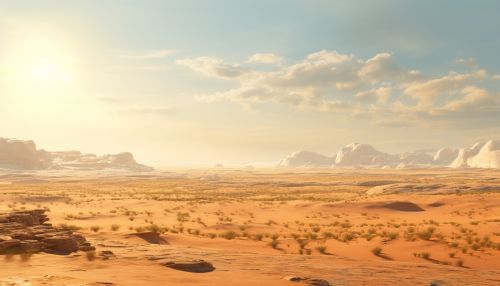Mauritania
Geography
Mauritania is located in the western region of the continent of African continent. It is the eleventh largest sovereign state in Africa and is bordered by the Atlantic Ocean to the west, Western Sahara to the north and northwest, Algeria to the northeast, Mali to the east and southeast, and Senegal to the southwest. The country spans an area of about 1,030,700 square kilometers.


The country's landscape is characterized by vast stretches of desert, with only a small portion of fertile land to the south, along the Senegal River. The desert, known as the Saharan Desert, covers over three quarters of the country. The country's topography is generally flat, with occasional ridges and cliffs.
The climate in Mauritania is hot and dry, with wide temperature ranges. The country experiences a desert climate in the north and a semi-desert climate in the south. The rainy season, which is short and irregular, occurs between July and September.
History
The history of Mauritania dates back to the Neolithic Era when the Sahara was fertile and supported a wide variety of wildlife. The first inhabitants were the Bafours, an ancient people who were likely the ancestors of the present-day Haratin ethnic group.
In the 3rd century BC, Berbers migrated to the area from the north and mixed with the indigenous population. The Berbers established the first known kingdom in Mauritania, known as Mauretania, which was later incorporated into the Roman Empire.
In the 7th century, the region was invaded by the Arabs who introduced Islam. The Arab-Berber mix, known as the Moors, dominated the region and established several powerful kingdoms.
The French colonized Mauritania in the 19th century as part of French West Africa. The country gained independence on November 28, 1960.
Politics
Mauritania is an Islamic Republic. The political system is a combination of presidential and military rule. The President of Mauritania is the head of state and the Prime Minister is the head of government. The country has a multi-party system but is dominated by the Union for the Republic party.
The country's legal system is a mix of French civil law and Islamic law. The judiciary is independent of the executive and the legislature.
Mauritania is a member of the UN, African Union, Arab League, Organisation of Islamic Cooperation, and the Francophonie.
Economy
Mauritania's economy is largely based on natural resources such as iron ore, gold, copper, gypsum, and phosphate rock. The country is one of the largest exporters of iron ore in Africa.
Fishing and agriculture also play a significant role in the country's economy. However, the country is heavily dependent on foreign aid and is considered one of the least developed countries in the world.
Culture
The culture of Mauritania is a blend of Arab, Berber, and African influences. The official and most widely spoken language is Arabic, followed by Pulaar, Soninke, and Wolof.
Islam is the state religion and nearly all Mauritanians are Sunni Muslims. Islamic customs and laws heavily influence the country's culture.
Music and dance play a significant role in Mauritanian culture. The traditional music of Mauritania is characterized by its complex modal system known as "azawan".
